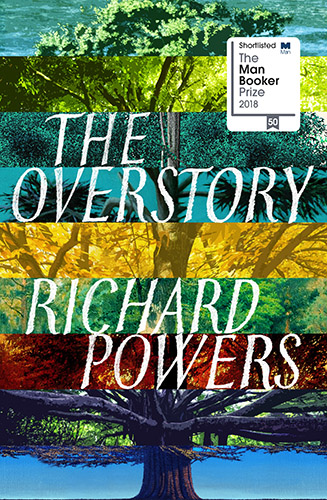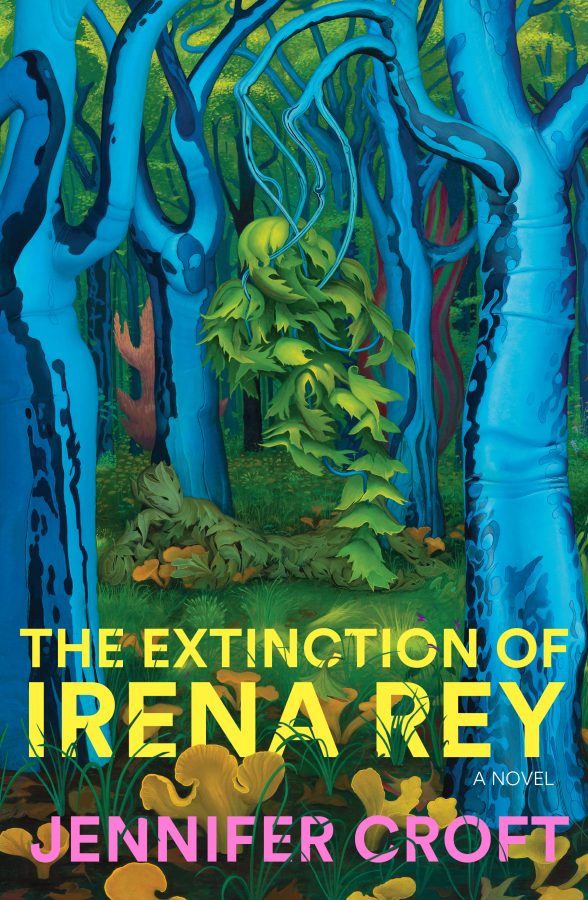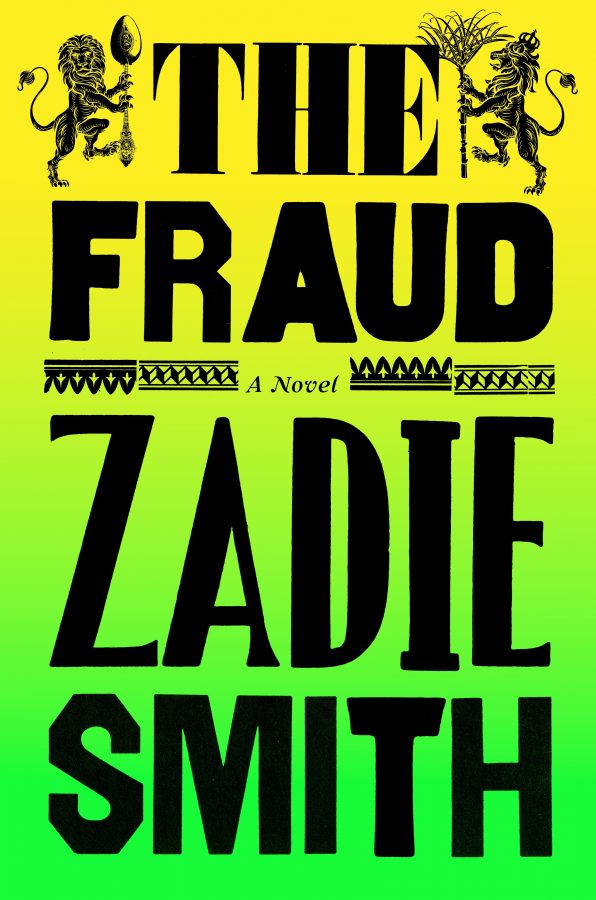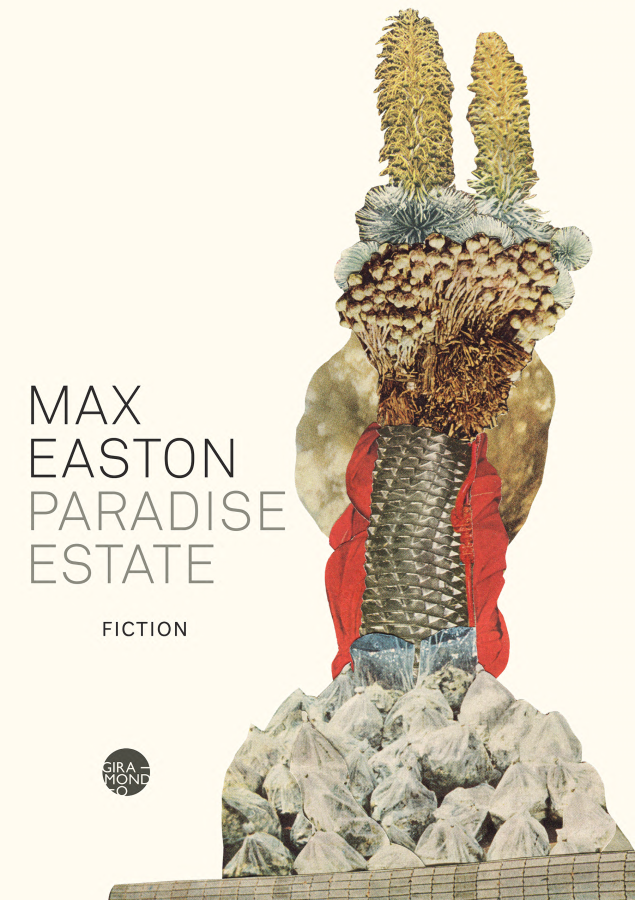Richard Powers’ The Overstory, a novel concerned with the place of trees in the modern world, opens with the meditations of an as-yet unidentified woman. She is sitting on the ground, leaning against a pine tree, ‘in a park above a western city after dusk’:
[The tree’s] bark presses hard against her back, as hard as life. Its needles scent the air and a force hums in the heart of the wood. Her ears tune down to the lowest frequencies. The tree is saying things, in words before words.
‘Words before words’: in opposition to several hundred years of humanist ideology, Powers’ twelfth novel insists, from its very first page, on meaning as something other than, and more than, the projection of culture upon nature’s blank screen. Trees, we will later be told, are ‘making significance, making meaning, as easily as they make sugar and wood from nothing, from air, and sun, and rain’. Indeed, Powers strives throughout to suggest how the would-be-autonomous sphere of human meaning depends upon those deeper orders that it has, in the modern era, gone to such pains to dismiss. As the opening meditation continues the surrounding trees ‘join in’, admonishing the woman for the partiality of human understanding:
All the ways you imagine us – bewitched mangroves up on stilts, a nutmeg’s inverted space, gnarled baja elephant trunks, the straight-up missile of a sal – are always amputations. Your kind never sees us whole. You miss the half of it, and more. There’s always as much belowground as above. That’s the trouble with people, their root problem. Life runs alongside them, unseen … A chorus of living wood sings to the woman: If your mind were only a slightly greener thing, we’d drown you in meaning.
Acts of arboreal ventriloquism are rare in The Overstory. ‘If I could have managed it,’ remarks Powers in an interview with Everett Hamner, ‘I would have tried to write a novel where all the main characters were trees! But such an act of identification was beyond my power as a novelist, and it probably would have been beyond the imaginative power of identification of most readers.’ In fact, Powers is preoccupied less with translating what trees have to say than with asking whether contemporary humans are able to tune down to frequencies at which we might hear them.
The Overstory does not offer a strong theory – in a political-economic register, for example – as to why this should be so difficult. Nor is the novel especially interested in allotting blame for environmental destruction or nuancing the collective pronouns it deploys. On the one hand, this might strike readers as appropriate: the despoliation detailed in the novel is at once everyone’s problem and no one’s. On the other hand, it might strike some as problematic: the responsibility for environmental destruction is unevenly distributed, as are its consequences and the power for ‘us’ to choose another course. In the absence of such an analysis, the novel tends simply to lament humanity’s root problem in cognitive or cultural terms: if only our minds were a little greener. Where the problem does take on a materialist cast, it tends to be a matter of culture’s neurological underpinnings: ‘If his brain were a slightly different thing,’ comes the refrain, from a man regretting his inability to read a tree’s biography in the whorls of a wooden desktop.
Powers instead lets his attention range across a broad cast of exceptional characters who, as he puts it in the Hamner interview, ‘come to take trees seriously’. As their stories unfold, the novel repeatedly invokes the idea that models for a more harmonious relationship with the natural world can be found in the past. ‘You and the tree in your backyard come from a common ancestor,’ writes one of Powers’ protagonists, in a book she publishes on the subject. ‘A billion and a half years ago, the two of you parted ways. But even now, after an immense journey in separate directions, that tree and you still share a quarter of your genes.’ True progress – not to be confused with its fallen modern counterpart – would consist in remembering this shared substance; to overcome the modern aspiration to dominate nature would be to rescue ourselves. In keeping with his evident Romanticism, Powers tends to portray the unknowing and playful orientation of childhood – and cases in which supposedly mature consciousness is short-circuited (literally, in one character’s case, by electrocution) – as exemplary of an alternative mode of comportment. He also goes out of his way, however, to show just how strongly the grown-up world militates against its own redemption.
We meet Adam Appich, for example, as a little boy who is, to borrow his own mother’s overheard description, ‘a little socially retarded’. Adam’s brother helpfully explains the meaning of this term: ‘Not regular people.’ The younger boy is relieved: ‘There’s something wrong with regular people,’ Adam thinks. ‘They’re far from being the best creatures in the world.’ As is the case with many socially incompetent men in Powers’ novels, however, Adam’s awkwardness is the corollary of his brilliance. Blindness in one domain conditions insight in another. One early episode sees both manifest in his concern for a tree his father buys to mark totemically the impending birth of Adam’s infant brother:
[His] father, cursing and blaming, wrestles the burlap-wrapped root ball toward a hole torn out of the lawn’s perfect green. Adam, lined up with his siblings on the edge of the hole, sees something terribly wrong. He can’t believe no one intervenes.
‘Dad, stop! That cloth. The tree is choking. The roots can’t breathe.’
His father grunts and wrestles on. Adam pitches himself into the hole to prevent the murder. The full weight of the root ball comes down on his stick legs and he screams. His father yells the deadliest word of all. He yanks Adam by one arm out of his live burial and hauls the boy across the lawn, depositing him on the front porch. There the boy lies face down on the concrete, howling, not for his pain, but for the unforgivable crime inflicted on his brother-to-be’s tree.
Not too bright, a reasonable onlooker might think. On the other hand, Adam has demonstrated his openness to, and sense of entanglement with, the nonhuman world – not to mention the courage of his convictions. A more promising demonstration of such sympathy, in an episode shortly after, provides one of the most memorable scenes of the novel’s opening section. During his summer holidays, Adam ‘falls for ants’ as he watches them feasting on a dropped Popsicle:
Ants on the edge of the saturnalia seethe across his socks and up his skinny shins. They mount at his elbows into the sleeves of his tee. They scout his shorts and tickle his nuts. He doesn’t care. Patterns reveal themselves as he watches, and they’re wild.
The pleasure of playful observation gives rise to an experiment inventive beyond Adam’s years. Rushing home to borrow nail polish from his sister, he returns to the colony and ‘begins daubing’:
A tiny globe of Smokin’ Rose sticks to the abdomen of one of the scavengers. One by one, he brands dozens more ants with the same hue. Several minutes later, he starts in again with Neat Peach. By mid-morning, the whole spectrum of polish is in play. Soon, coloured daubs reveal a tangled conga line of unreal beauty. The colony possesses something; Adam doesn’t know what to call it. Purpose. Will. A kind of awareness – something so different from human intelligence that intelligence thinks it’s nothing.
Adam records his observations, devoting his school holidays to the project. ‘His respect for the cleverness of ants grows without limit,’ we are told. ‘Flexible behaviour in the face of changing conditions: What else can you call it but wicked smart?’ He then enters the results in his school science fair, his project titled ‘Some Observations of Ant Colony Behaviour and Intelligence’. ‘There are better-looking efforts throughout the hall,’ Adam is aware, ‘and ones where the student’s dad has clearly done all the science. But none of the other entrants has looked at a thing the way he has.’
Adam is awarded no medal for his work. On the contrary, he is reprimanded: where’s his bibliography? His work cannot even be considered without one. The boy dismisses this rationale as a bureaucratic lie: ‘They think he stole. They can’t believe a kid worked for months on an original idea, for no reason at all except the pleasure of looking until you see something.’ These thoughts, and the resentment they portend, soon blossom into pre-teen misanthropy:
Humankind is deeply ill. The species won’t last long. It was an aberrant experiment. Soon the world will be returned to the healthy intelligences, the collective ones. Colonies and hives.
Shortly after meeting Adam Appich, the reader is introduced to Patricia Westerford. Thanks to the encouragement of her unorthodox father, as a young child Patricia develops a prodigious knowledge of, and unusual appreciation for, the world of plants. (Most people, her father tells her, are ‘plant-blind’: ‘We only see things that look like us. Sad story, ain’t it, kiddo?’) Unlike Adam, Patricia maintains her own childhood sympathies for nonhuman life – and corresponding social maladaptation – into adulthood. Following her passion into a university education in forestry, she finds herself ‘marooned’. ‘Bitter irony: here she is, with her people, at last, and even they can’t see the obvious.’
And what is so obvious? The same thing that the child Adam could see: nature possesses unrecognised intelligence. In this case, more specifically, Patricia sees that trees are social, communicative creatures. ‘It’s obvious to her: motionless things that grow in mass mixed communities must have evolved ways to synchronise with one another. Nature knows few loner trees.’ Yet all the power in our fallen world is in the death-grip of the plant-blind:
Something is wrong with the entire field.…The men in charge of American forestry dream of turning out straight clean uniform gains at maximum speed. They speak of thrifty young forests and decadent old ones, of mean annual increment and economic maturity. She’s sure these men who run the field will have to fall, next year or the year after. And up from the downed trunks of their beliefs will spring rich new undergrowth. That’s where she’ll thrive.
For a moment, it looks like Patricia will have her spring. Spending her postdoctoral years in a mixture of scientific sobriety and poetic reverie – a mood also familiar from other Powers novels, perhaps especially The Gold Bug Variations (1991) – she emerges with a well-evidenced formulation of her childhood hunch: ‘The biochemical behaviour of individual trees may make sense only when we see them as members of a community.’ The resulting scientific paper is accepted for publication.
A few months later, as she is enjoying a brief flirtation with fame, ‘the journal that ran the piece prints a letter signed by three leading dendrologists’. The letter ‘mocks the idea that trees send each other chemical warnings’. The results, for the young scientist, are devastating:
No one in the profession bothers trying to replicate Patricia Westerford’s findings. Those researchers who wrote her for more information stop responding to her letters. The newspapers that ran the wide-eyed articles follow up with accounts of her brutal debunking.
The sapling of Patricia’s career, choked by the weeds of institutionalised mean-spiritedness and a lack of adult imagination. Humiliated, unemployable, she is driven to the brink of suicide. At the very last minute, however, she instead turns to a life of itinerant obscurity – one that she will maintain for many years before discovering, quite accidentally, that she has been vindicated.
That scientific consensus catches up with Patricia does suggest, however dimly, the possibility of broader social change. As one character points out:
people went from believing that women are too frail to vote to having a major-party vice presidential candidate, in one lifetime. From Dred Scott to Emancipation in a few years. Children, foreigners, prisoners, women, blacks, the disabled and mentally ill: they’ve all gone from property to personhood.
Why not trees? The deeper question running through the novel, however, is how far the human order of meaning can be stretched before it breaks. Reading Christopher D. Stone’s essay ‘Should Trees Have Standing?’, Ray, an intellectual property lawyer, feels as if ‘[h]is whole self is dissolving’, as if ‘[a] great gift that has been his since birth is being taken away’. His career appears suddenly ‘like one long war crime, like something he’ll be imprisoned for, come the revolution’. In one of the book’s climactic scenes, Patricia Westerford, delivering a lecture on ‘the single best thing a person can do for tomorrow’s world’, volunteers for such dissolution, offering her audience a dramatic and perverse ‘toast to unsuicide’. Yet the novel does seek to interrogate its self-styled revolutionaries and martyrs. As The Overstory unfolds, the paths of several of its characters converge in events inspired by the so-called Redwood Summer of 1990. Adam – by this stage a psychological researcher interested in various forms of bias and the possibilities of cognitive ‘unblinding’ – sets out to interview the canopy-dwelling activists, hoping to establish the genuineness of their appeal to a ‘nonhuman moral order’. His central research question: ‘Who does the tree-hugger really hug, when he hugs a tree?’
The Overstory is by no means Powers’ first contribution to discussions about ecology. Indeed, in a 2008 essay, Bruno Latour writes that he considers Powers’ body of work ‘a tool box’ for his own highly influential project in science studies. Powers’ second novel, The Gold Bug Variations (1991), and his tenth and eleventh, Generosity (2009) and Orfeo (2014), all deal with the scientific mapping of, and the morality of our intervention in, the genetic substrate of life. Gain (1998) braids the story of a woman suffering from cancer with that of the two-hundred-year-old hyperobject Clare, a corporation whose products may well be responsible for her illness, but whose entanglement with her lifeworld is sufficient to make it a part of the environment itself. The Echo Maker (2006), in addition to reflecting on the basis of human thought and identity in the brain, dwells on the distributed intelligence of migratory cranes.
Yet the real interest, for ecological thinkers, has typically been less in the content of Powers’ books than in the formal strategies by which they unveil the isomorphism of these seemingly disparate domains of knowledge and activity. Throughout his novels, Powers employs ‘stereoscopic’ structures, as Stephen J. Burn and Peter Dempsey memorably put it, that produce cognitive as well as narrative outcomes. In a world characterised by increasingly specialised and thus self-enclosed epistemic discourses, these structures demonstrate how, in doing or talking about one apparently discrete thing, we are very often doing or talking about another. They express the basic insight of contemporary ecological thought: as Timothy Morton has recently written, ‘the leg bone’s connected to the toxic waste dump bone’.
This approach has often demanded a complex engagement with a wide variety of highly technical vocabularies – from genetics to artificial intelligence, from virtual reality to botany, from quantum mechanics to neuroscience – that has earned Powers a reputation as a novelist of ideas. Latour disputes this description:
By accusing Powers of simply ‘clothing ideas with flesh’, critics imply that they know what it means to be an idea, what it means to be a character, what it means to possess a ‘realistic’ psychology, what it means to play the role of a ‘fact’ on the stage of the narrative, what it means to be an episode in a narrative, whereas all of those features are explicitly and relentlessly questioned by the novels they are reviewing.
In an essay published in 2008, Powers echoes and elaborates on these sentiments:
If mimetic fiction, on one hand, inviting an act of unbroken identification that wilfully takes the symbol for the symbolised, trades in what John Gardner called the ‘vivid and continuous’ fictional dream, and if postmodernism, on the other hand, calling attention to itself as an artifice through all sorts of anti-narrational devices, employs wilful interruption of this unbroken dream, the novel I’m after functions as a kind of bastard hybrid, like consciousness itself, generating new terrain by passing ‘realism’ and ‘metafiction’ through relational processes, inviting identification at one gauge while complicating it at others, refracting the private through the public, story through form, forcing the reading self into constant reciprocal renegotiations by always insisting that no level of human existence means anything without all the others.
Against the backdrop of such declarations, The Overstory’s title seems to make some compelling promises: at once a literal term for the forest canopy; a signal that, in striving to see the wood for the trees, the usual scale of human narrative will zoom out to reveal a broader, less obvious set of patterns; and a witty narratalogical coinage, an intimation that this will indeed be, and will need to be, a metafiction, a story about what stories are and what else we’re doing when we tell them. Unfortunately, at the point in Powers’ career when this layered, recursive way of writing would be most appropriate, it is not strongly in evidence. What we have instead is a wonderfully accomplished, even magisterial, but rather conventional novel.
At the beginning of his essay Being Ecological (2018), Timothy Morton observes that we tend to speak to ourselves about ecosystemic crisis and mass extinction in a hectoring, even abusive manner. Our discourse is freighted with guilt, and suggests a horizon of possibility for meaningful action, inherited from agricultural-age religion. The generic space representative of this attitude is what Morton calls ‘information dump mode’. Texts operating in this mode are heavily dependent not only on particular facts, but also on a certain attitude toward the factual: ‘[they seem] to be saying Don’t question this, or even You should feel very bad if you question this’. For Morton, the issue is not that the facts proffered in information dump mode are incorrect. Rather, it’s that the mode itself is secretly incoherent, involving an illocutionary sleight-of-hand:
The explicit content of the data seems so urgent: it’s as if it is screaming, ‘Look, can’t you see? Wake up! Do something!’ But the implicit content of the mode in which we send and receive this data contradicts this urgency in a stark way: ‘Something is coming but it’s not here yet. Wait – look around, anticipate.’ Can you see how the message is two-faced? One face is shocking, urgent; the other face is an anti-shock blister.
That it is incoherent is not, of course, to say that it is ineffective. With data dumps, we negotiate a still-unfolding trauma by imaginatively projecting ourselves into a position at once before the problem arose and after it was resolved. By contrast, Morton wants to give us a book about ecology that ‘contains no ecological facts, no shocking revelations about our world, no ethical or political advice, and no grand tour of ecological thinking’. His wager is on the possibility that being playful is not the opposite of being serious.
On the face of it, The Overstory is the antithesis of an information dump. As a work of fiction, we might say, it too is devoid of ecological facts. A work of art, it stands outside and is implicitly opposed to the economic order and instrumentalist modes of thought that are destroying the biosphere. It invites the reader to peer past the profane and vanish for a time, like the woman with whose meditation the book begins, into a world inside the world, a time outside time.
Yet for these very reasons, The Overstory might be placed alongside the activist’s tome and the columnist’s philippic. It is not just that awe and wonder – which Powers has referred to as ‘the first, most basic tools involved in turning toward and becoming attentive to that meaning above and beyond our own’ – are intimately related to guilt and terror, often growing alongside them in the same dutifully-tilled Neolithic soil. Between reading Morton and reading Powers, I found myself thinking about Roland Barthes’ discussion, in Writing Degree Zero, of the function of the preterite in the form of the novel: ‘Thanks to it reality is neither mysterious nor absurd; it is clear, almost familiar, repeatedly gathered up and contained in the hand of a creator; it is subjected to the ingenious pressure of his freedom.’ And here’s Barthes again, in a turn Morton might like: ‘The teleology common to the Novel and to narrated History is the alienation of the facts: the preterite is the very act by which society affirms its possession of its past and its possibility.’
The Overstory may not be written in the past tense, but it offers its reader far more of the unbroken, vivid and continuous fictional dream than its wilful interruption. The orderliness that Barthes sees as implicit in the conventional novel form – that form, to borrow the opening line of Powers’ Galatea 2.2 (1995), for which ‘it was like so, but wasn’t’ – means that even as we are brought to countenance the crimes we are perpetrating against our fellow earthlings, and thereby against ourselves, all of this somehow belongs at once to a pseudo-past survived and to a hermetically contained subjunctive sphere located, if anywhere at all, somewhere adjacent to a distant and manageable future. The explicit content? Trees and forests are awe-inspiring and wonderful beyond what you’ve imagined and their annihilation is an irreparable loss. The implicit content? It’s all under control. ‘Even from the depth of the most sombre realism,’ writes Barthes, the posterity of novelistic narrative ‘has a reassuring effect’; the novel is ‘a closed, well-defined, substantial act’, and in it ‘reality becomes slighter and more familiar, it fits within a style, it does not outrun language.’ In this sense, The Overstory is perhaps a little too beautifully composed; even in its darkest moments it seems somehow well-lit.
Powers is alert to possible objections. At one point in the story, Adam ‘tries to read a novel, something about privileged people having trouble getting along with each other in exotic locations. He throws it against the wall.’ Powers’ skill is such that I never felt any violent impulse. But as the book wore on, the whole production did start to feel effortful: I could almost hear the mesmeric narrative voice turning hoarse. Few critics have reported similar qualms. Nathaniel Rich praises Powers in The Atlantic as ‘the rare American novelist writing in the grand realist tradition, daring to cast himself, in the critic Peter Brooks’ term, as a “historian of contemporary society”… At a time when literary convention favours novelists who write narrowly about personal experience, Powers’ ambit is refreshingly unfashionable, restoring to the form an authority it has shirked.’
I look back at Galatea 2.2 as perhaps the most ecologically attuned of Powers’ books. This strange, mid-’90s sci-fi, with a protagonist named Richard Powers, sought to trouble – was troubled by – its own artifices. With its uneasy incorporation of memoiristic passages, it anticipated some of the most provocative literary works to address our ecological situation in the past few years: Ben Lerner’s 10:04, for instance, which in seeking to scrutinise its own cognitive, medial, economic and environmental conditions of possibility, better realises the self-conscious approach avowed by Powers in his critical writing than does The Overstory. Though ostensibly grounded in ‘the personal’, Lerner’s work – alongside ambiguous offerings from Geoff Dyer, Karl Ove Knausgaard and Ali Smith, to name just a few – engages in a project comparable to that outlined by Adorno in his Negative Dialectics: ‘To use the strength of the subject to break through the fallacy of constitutive subjectivity.’ To borrow a phrase from Powers – or ‘Powers’, his fictionalised narrator – in Galatea 2.2, works in this essayistic mode travel the ‘the dense turnpike of the not-I.’
Indeed, among the most ecologically sophisticated works of recent years have been those that, even as they acknowledge the pervasiveness of fictionality, rather than locating it in the ontological ‘over there’ of the novel, seek to admit of a limit to imagination. I think here of the critic Courtney Traub’s proposal, in reference to the work of Mark Z. Danielewski and Evan Dara, of a potential ‘ethics of opacity’ for fictions that seek to peek beyond the anthropocentric frame’s edge. One might, following this logic, query the wisdom of aspiring to write a novel whose main characters are trees. Even more fundamentally, one might ask whether our fixation upon narrative, our naturalisation of its teleology, may itself be a key element of our ecological unwinding. It might be time for us to get over story.
Works Cited
Adorno, T.W. (1973). Negative Dialectics. Translated by E.B. Ashton. London & New York: Continuum.
Barthes, R. (1967). Writing Degree Zero. Translated by A. Lavers & C. Smith. New York: Hill and Wang.
Latour, B. (2008). ‘Powers of the Facsimile: A Turing Test on Science and Literature’. Intersections: Essays on Richard Powers. Edited by S.J. Burn & P. Dempsey. Urbana-Champaign: Dalkey Archive Press. 263-291.
Lerner, B. (2015). 10:04. New York: Picador.
Morton, T. (2018). Being Ecological. London: Pelican Books.
Powers, R. (1991). The Gold Bug Variations. New York: William Morrow.
Powers, R. (1995). Galatea 2.2. New York: Farrar, Strauss & Giroux.
Powers, R. (1998). Gain. New York: Farrar, Strauss & Giroux.
Powers, R. (2006). The Echo Maker, New York: Farrar, Strauss & Giroux.
Powers, R. (2008). ‘Making the Rounds’. Intersections: Essays on Richard Powers. Edited by S.J. Burn & P. Dempsey. Urbana-Champaign: Dalkey Archive Press. 305-310.
Powers, R. (2009) Generosity: An Enhancement. New York: Farrar, Strauss & Giroux.
Powers, R. (2014). Orfeo. New York: W.W. Norton & Company.
Powers, R. (2018). The Overstory. London: Penguin.
Powers, R. & Hamner, E. (2018). ‘Here’s to Unsuicide: An Interview with Richard Powers’. Los Angeles Review of Books. April 7, 2018.
Rich, N. (2018). ‘The Novel That Asks, ‘What Went Wrong With Mankind?’’. The Atlantic. June 2018.
S.J. Burn & P. Dempsey. (2008). ‘Preface’. Intersections: Essays on Richard Powers. Edited by S.J. Burn & P. Dempsey. Urbana-Champaign: Dalkey Archive Press. xi-xv.
Traub, C. (2016). ‘Non-Anthropocentric Narrative Strategies in Recent Experimental US Fiction’. Literature Compass. 13/9. 515-529.





